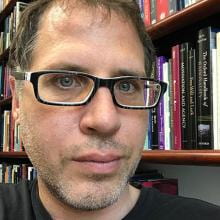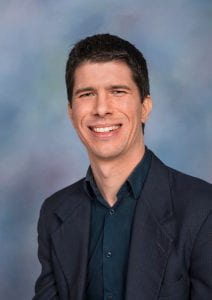Tim Schroeder

Tim Schroeder is a philosopher whose work has mostly focused on interpreting scientific findings to improve our philosophical theories of desire, action, love, virtue, addiction, and related matters. His first book, Three Faces of Desire (OUP 2004), makes the case that desires are constituted by the brain’s reward learning system; his second book, In Praise of Desire (OUP 2014), written with frequent co-author Nomy Arpaly, makes the case for a desire-centered moral psychology in which desires are the heart of our ability to act for reasons, and to act for moral reasons especially, and so to be virtuous. He received a PhD from Stanford University back in 1998, and has taught at the University of Manitoba and at Ohio State University. He came to Rice in 2015, and is a Professor there in the Department of Philosophy.
Marlon Mooijman

Marlon Mooijman is an Assistant Professor of Organizational Behavior. He teaches in the undergraduate business minor program and MBA full-time program.
Marlon studies two important sources of good leadership. First, he investigates how trust develops in relationships and how the emergence of power and status differences between people affects this trust development process. Second, he investigates the process by which people moralize their own and others’ behaviors, and how having a moralized worldview can both be good and bad: for instance, it can foster personal self-control and discipline but also promote interpersonal conflict and violence.
His work has been published in leading scientific journals such as Journal of Personality and Social Psychology, Nature Human Behavior, Research in Organizational Behavior, and Organizational Behavior and Human Decision Processes. Besides work, he enjoys bike riding, hiking, drumming, and spending time with his wife and son.
Bryan Denny

Dr. Bryan Denny is an Associate Professor of Psychology at Rice University and Director of the Translational Social Cognitive and Affective Neuroscience (T-SCAN) Lab. He received his BA in psychology in 2005 from Stanford University and his PhD in psychology in 2012 from Columbia University. He completed postdoctoral training in clinical applications of social cognitive neuroscience at the Icahn School of Medicine at Mount Sinai. Dr. Denny has had a longstanding interest in seeking to understand the psychological and neurobiological mechanisms that underlie successful and unsuccessful emotion regulation across a spectrum of healthy and clinical populations. Further, he is interested in utilizing the results of basic investigations into these processes in order to design and examine novel interventions focused on improving real-world emotion regulation outcomes in a variety of contexts.